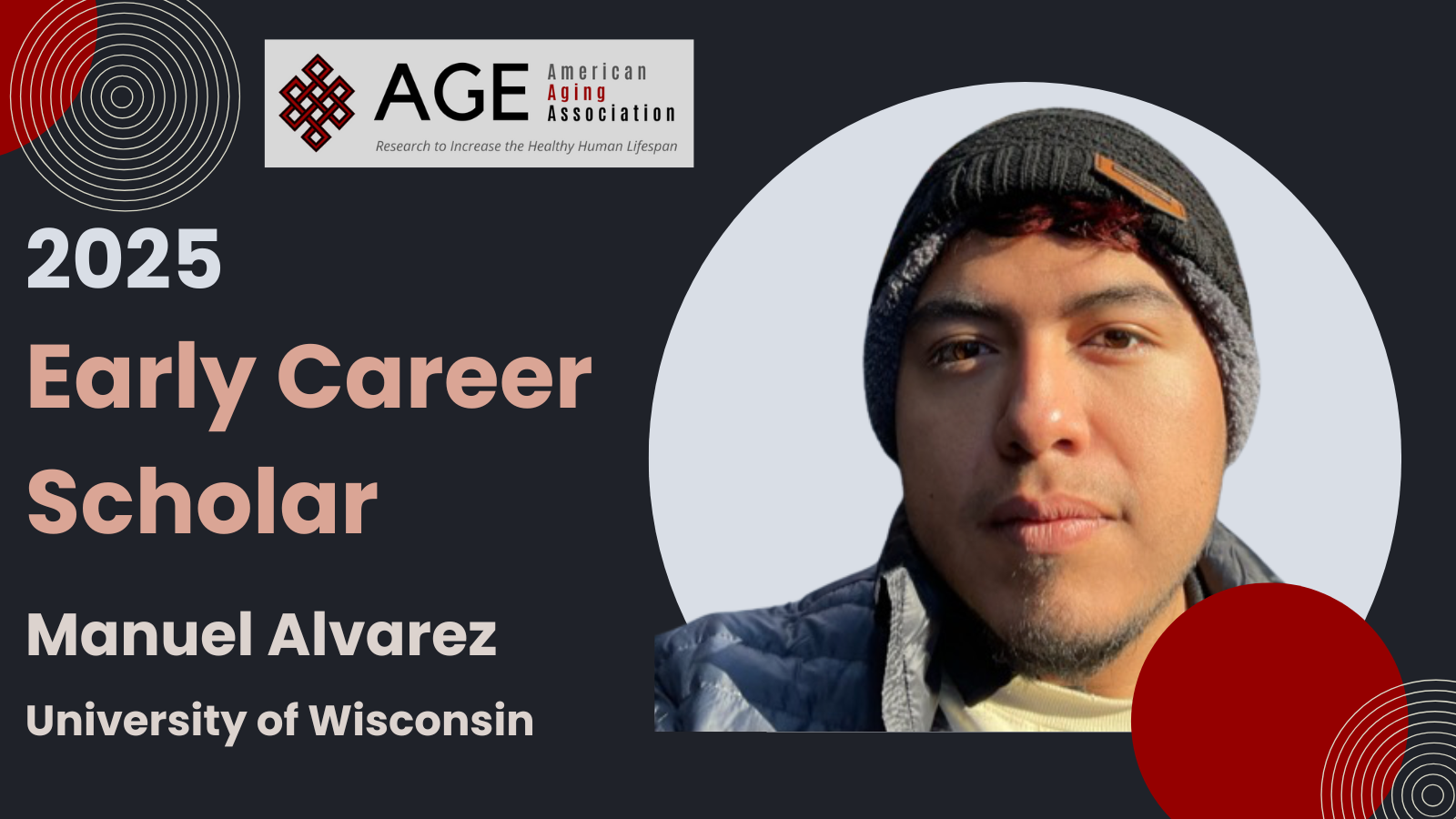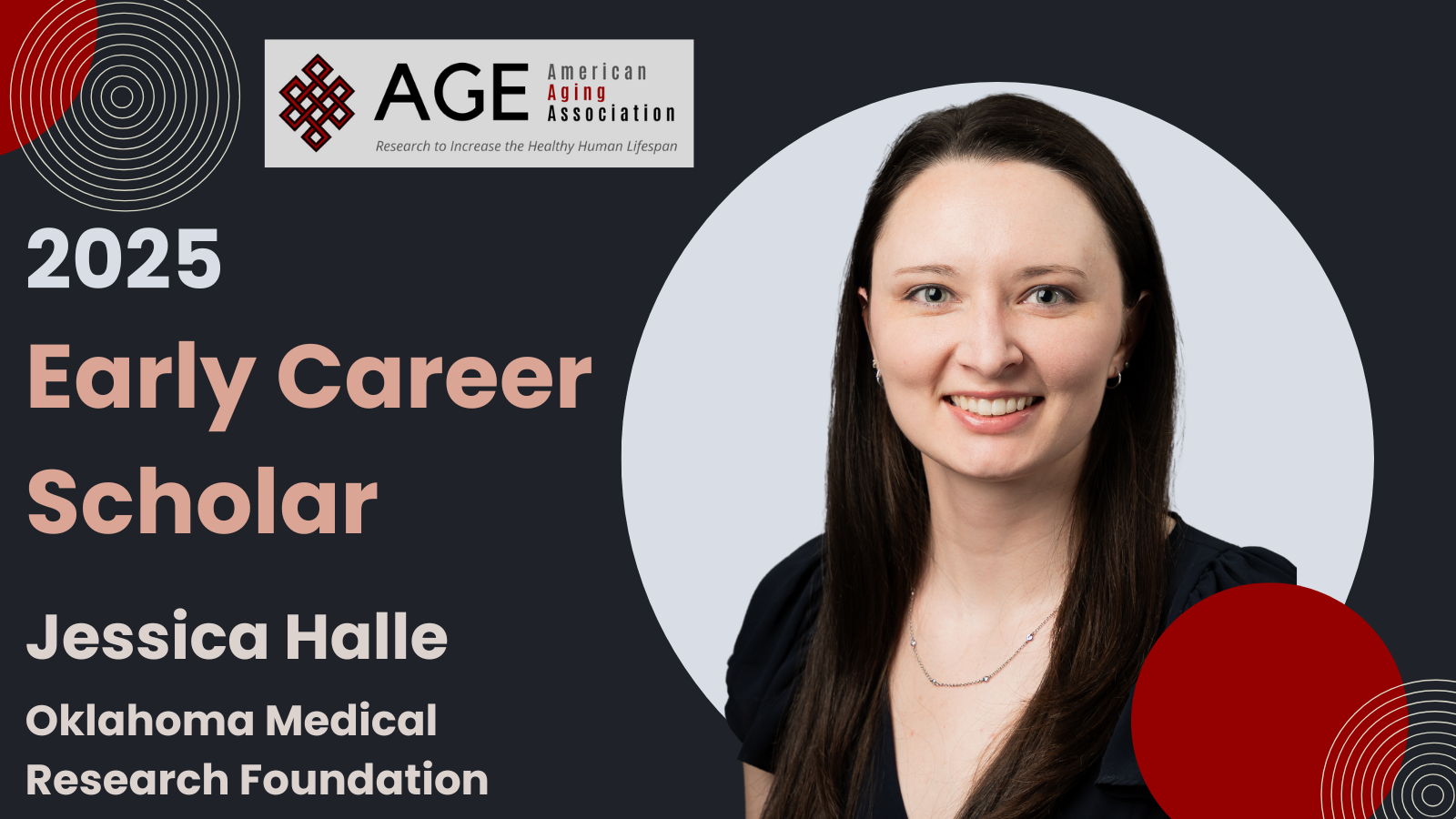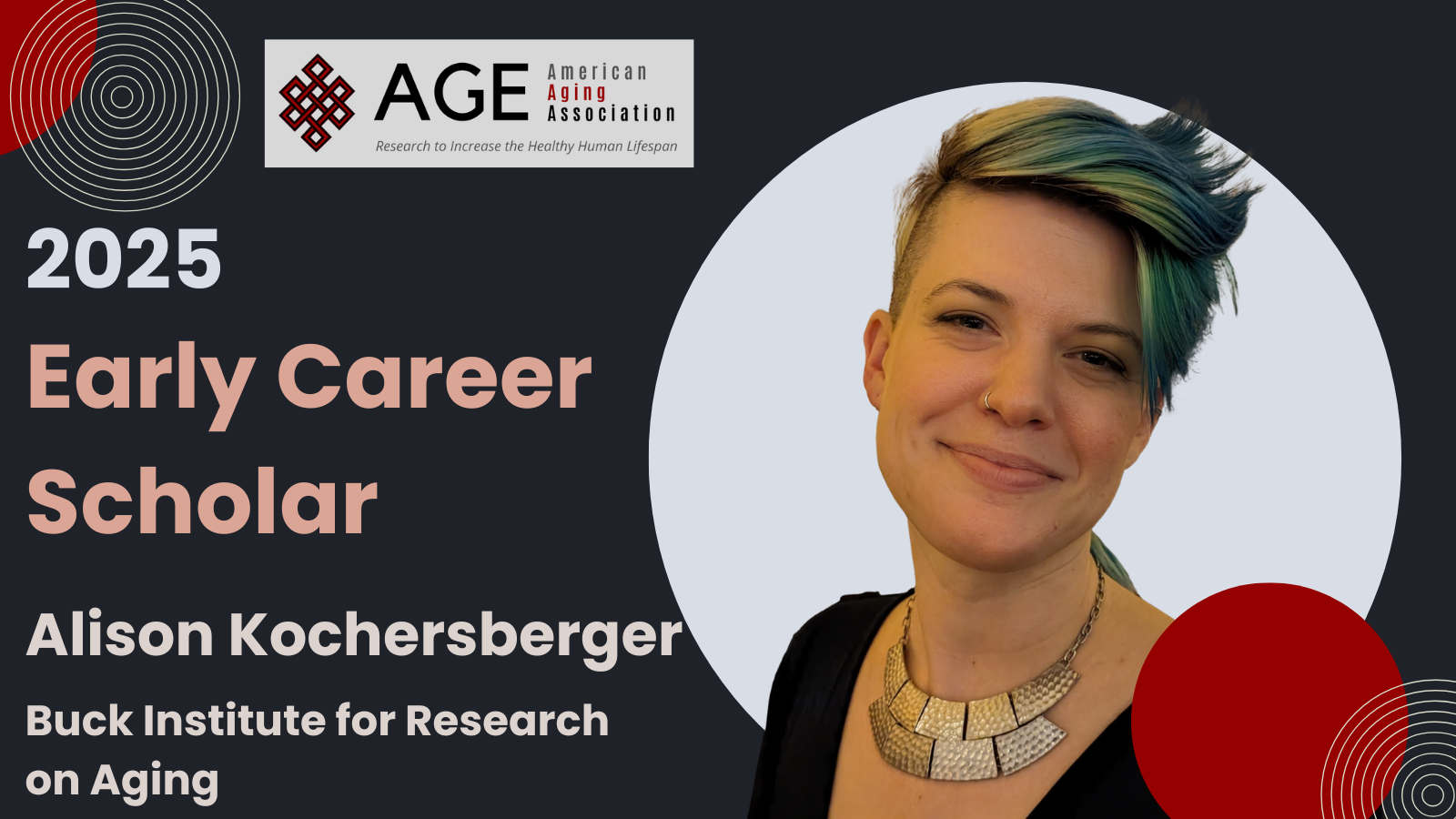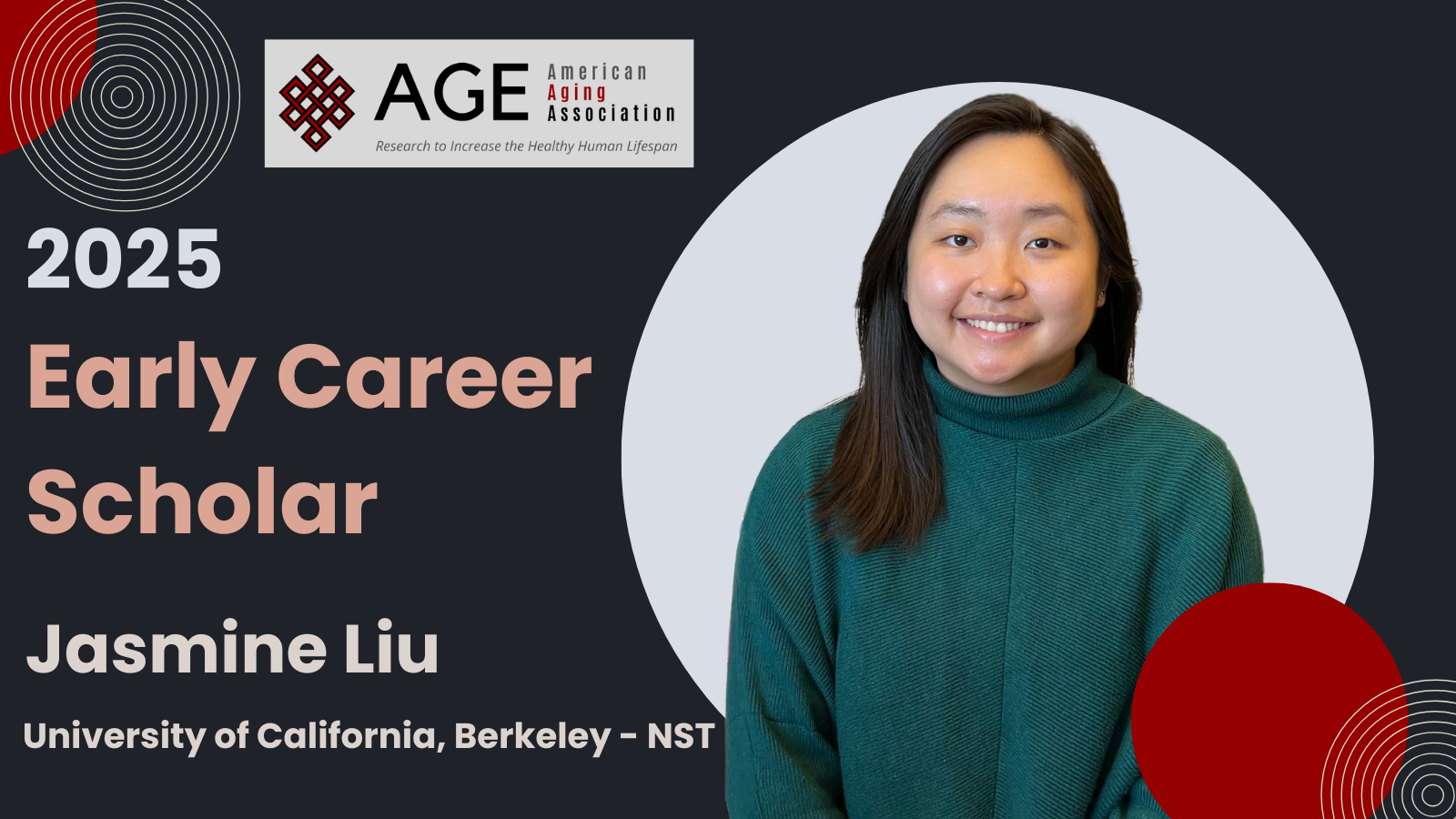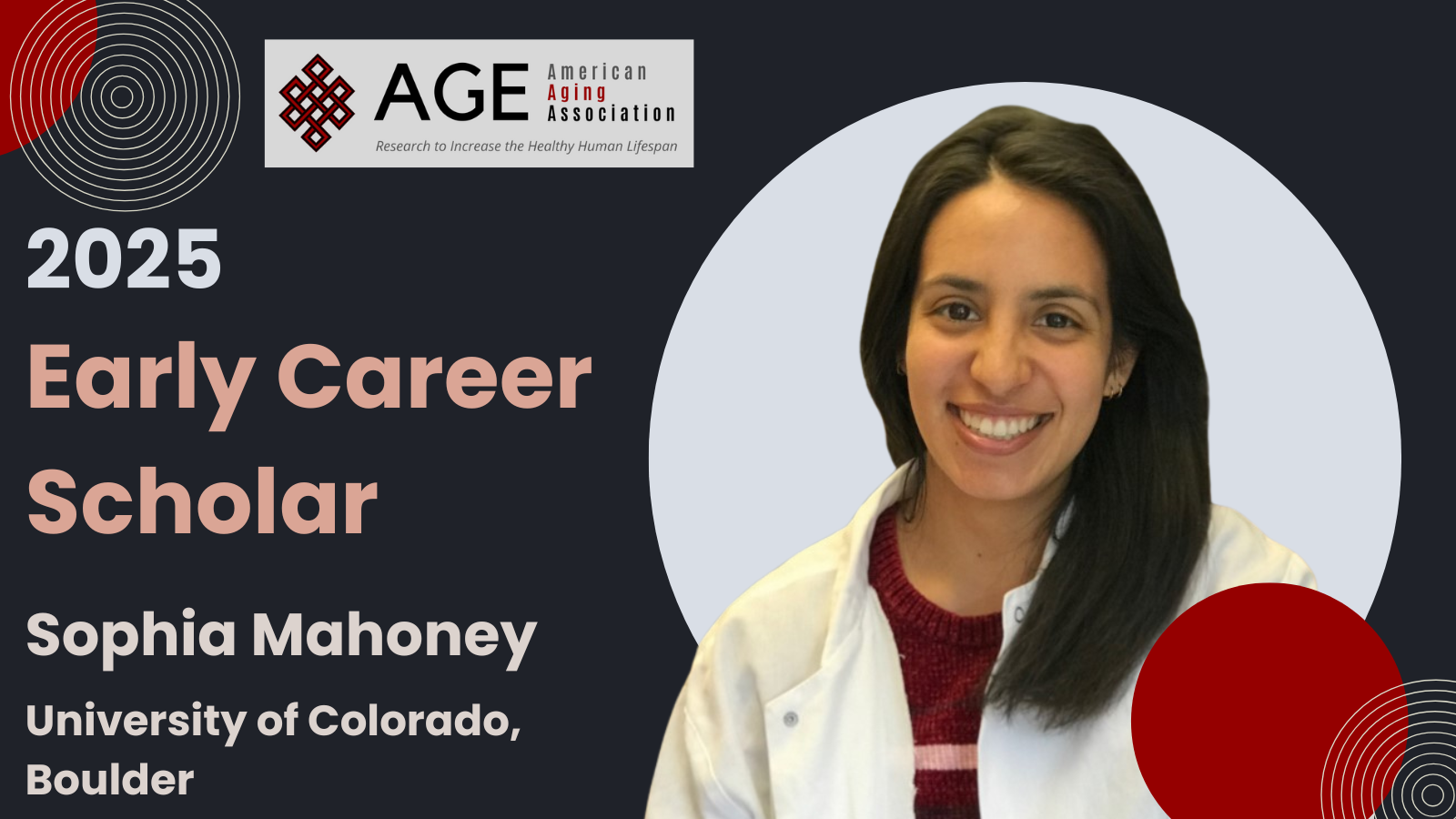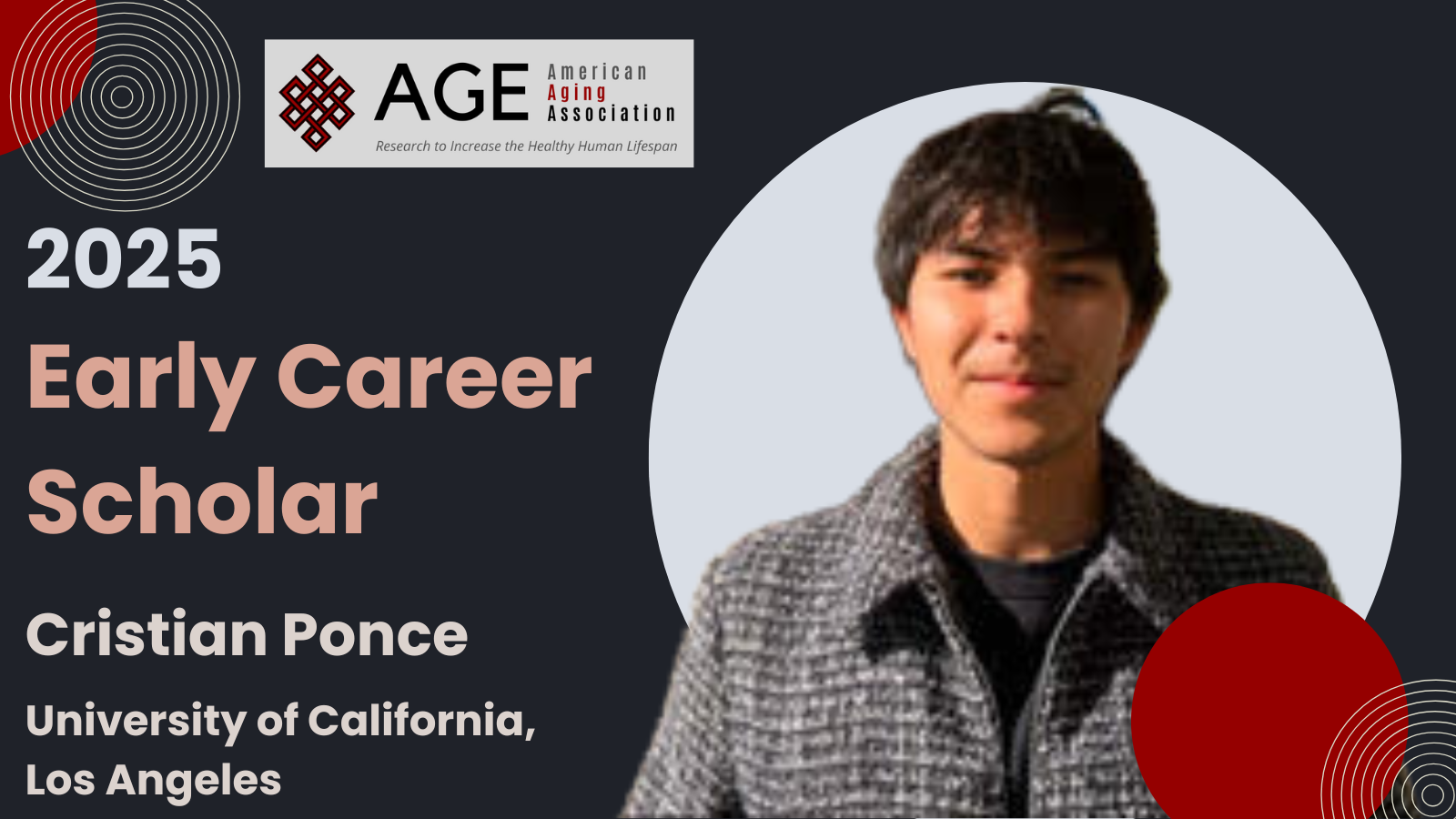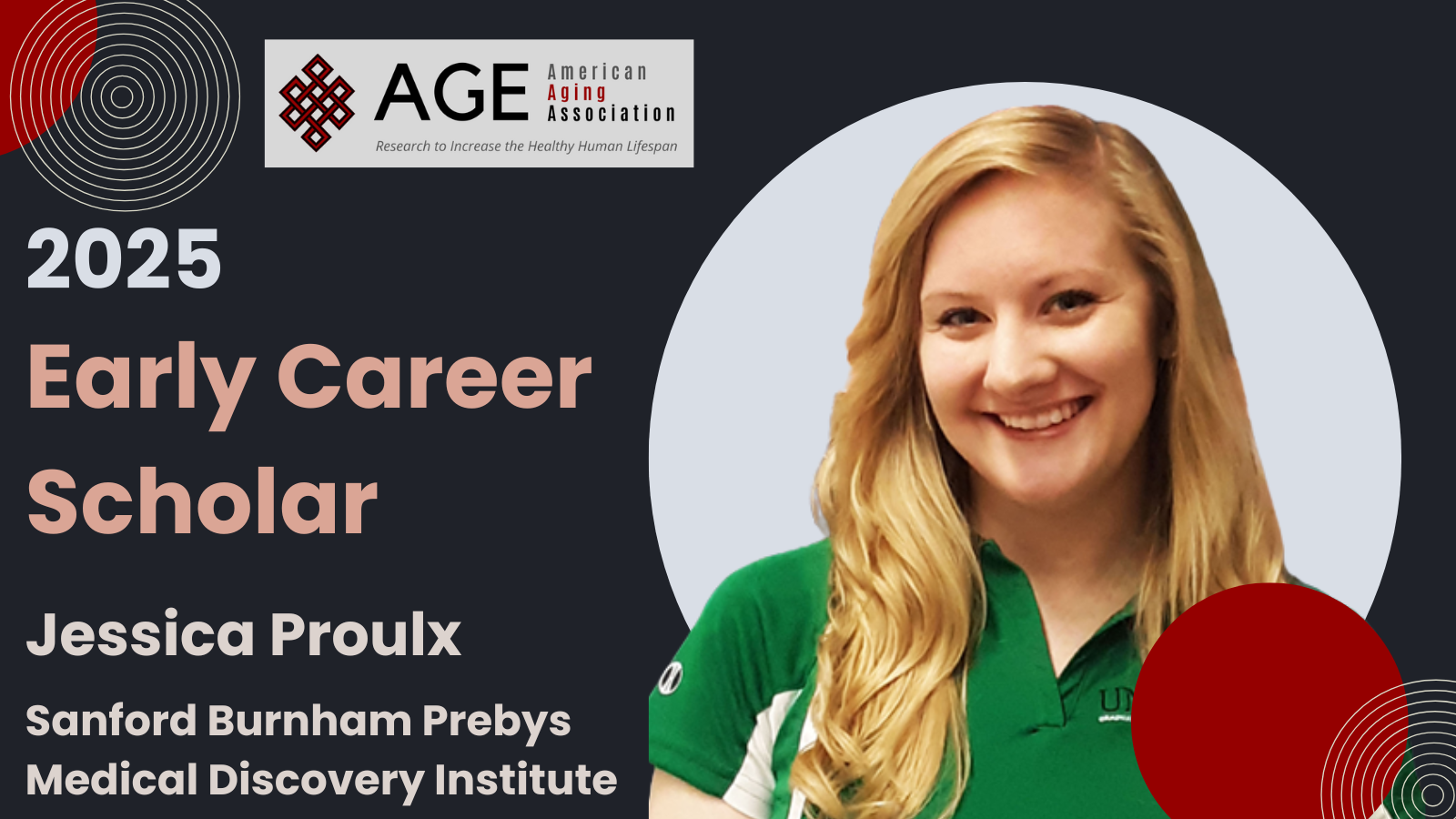AGE 2025 Early Career Scholar AwardeesIn Alphabetical Order
Manuel Alvarez Neurodegenerative diseases are characterized by an abnormal and progressive accumulation of proteins that lead to functional and morphological degeneration. The degradation of these proteins depend on their assortment into late endosomes, transportation to the soma, and their eventual fusion to lysosome. I am interested in determining how lysosomes modulate neurodegeneration with aging and whether accelerated neurodegeneration can be explain by abnormal protein half-lives.
Jessica Halle My work focuses on improving the quality of life of older adults. I am interested in understanding how aging affects skeletal muscle function and metabolism. My ongoing research seeks to establish the translatable potential for 17a-estradiol, a natural non-feminizing estrogen, as a treatment to reduce body fat and preserve muscle mass and metabolic function in aged obese populations.
Alison Kochersberger My research investigates how communication between the brain and ovary instructs ovarian function, and how age-related changes in this signaling contribute to ovarian aging. The goal of this work is to understand the key drivers of ovarian aging, to ultimately develop interventions to extend ovarian function and healthspan.
Jasmine Liu In the Dillin Lab, I am broadly interested in studying the mitochondrial unfolded protein response to better understand the bridge between mitochondrial dysfunction and metabolic diseases in relation to stress. In particular, I will explore the nutrient and metabolic niche aspects of mitochondrial signaling in the electron transport chain, and how it will affect aging and disease. My goal is that this work will open up possibilities for the development of therapeutic strategy on age-associated disorders.
Sophia Mahoney Sophia is a PhD Candidate in the Integrative Physiology of Aging Laboratory where she focuses on the role of cellular senescence in vascular aging. She leverages translational approaches to investigate mechanisms by which senescent cells contribute to vascular dysfunction and compounds that may eliminate senescent cells to improve vascular health with aging.
Thi Thanh My Nguyen My research focuses on uncovering the mechanisms of neural injury and developing novel therapeutic approaches for neurodegenerative diseases, including Alzheimer's disease, and vascular dementia.
Cristian Ponce I am primarily focused on investigating the molecular interactions and biology of senescent macrophages in the context of addressing age-related diseases. In particular, I am studying a mitochondrial-associated enzyme with an important role in modulating macrophage inflammatory responses and potentially contributing to cellular senescence in aging tissues. By integrating cellular and molecular approaches, I aim to contribute to the field’s initiative in characterizing processes driving aging and developing targeted therapies that enhance health span.
Jessica Proulx Loss of cell identity with aging—a process by which cells lose their specialized gene expression programs—has been increasingly recognized as a driving factor for age-associated dysfunction in multiple tissues. We are using cutting-edge tools and technologies to better understand the causes and consequences to this phenomenon, particularly in the liver, to develop strategies to prevent age-related cell dysfunction or even restore a more youthful cell function and identity.
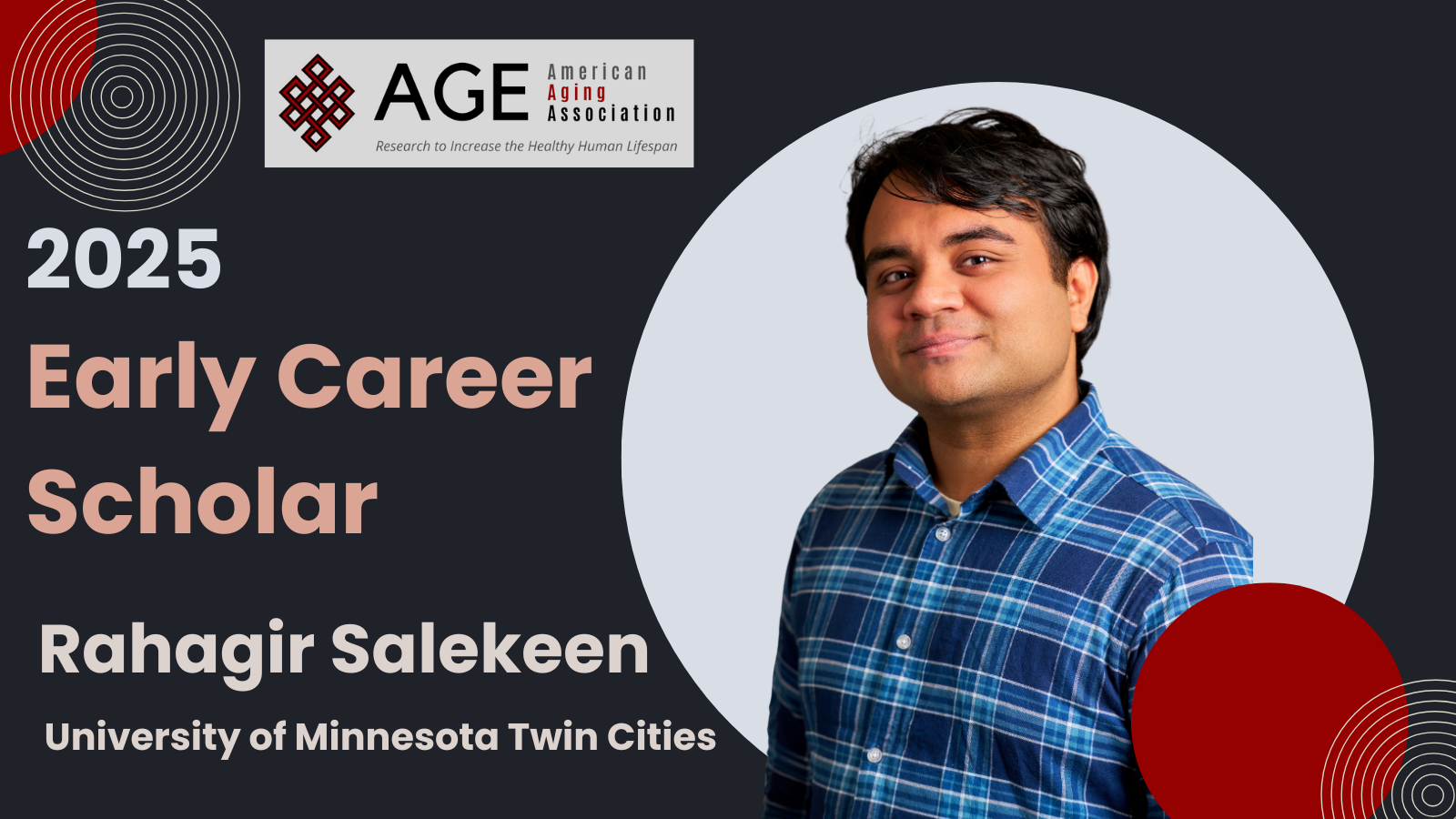 Rahagir Salekeen
University of Minnesota
I am a 3rd-year doctoral candidate in the Niedernhofer lab at the University of Minnesota. My research focuses on the intersection of cellular senescence, liver regeneration, and chronic liver diseases. Chronic liver disease is a leading cause of mortality and disease burden in the elderly. Young, healthy livers are versatile metabolic hubs marked by their remarkable ability to regenerate following insults. However, this regenerative capacity declines dramatically with age. My project aims to uncover the cellular and molecular mechanisms driving this decline and identify potential therapeutic strategies to rejuvenate liver function in elderly patients with limited access to transplantations.
AGE 2025 Diversity Awards
Nitya Jain Mitochondrial DNA mutations have harmful consequences in 1 in 5000 people such as Alzheimer’s and Parkinson’s. With the overall goal to prevent and repair damage from mitochondrial DNA mutations, the focus of the Boominathan lab at LRI is to develop ways to engineer cells to make these mutations harmless to aging cells. My research focuses on improving the allotopic expression of mitochondrial genes and mtDNA variance analysis in relation to age and pathology subsets using computational approaches.
Melisa Matonsi My research focuses on understanding the molecular mechanisms of aging and mitochondrial stress responses using C. elegans as a model organism. I use RNAi to knock down specific genes and assess their impact on lifespan and mitochondrial stress pathways, such as UPRmt activation. This work aims to uncover insights into the role of cellular stress in aging, contributing to potential therapeutic strategies for age-related diseases. As a biochemistry major, I am passionate about advancing biomedical research and aspire to pursue a career in medical science, focusing on improving health outcomes and promoting healthy aging.
Joshua Senior My research focuses on the neural mechanisms underlying attentional control and cognitive aging. Using novel eye-tracking, computational modeling, and neuroimaging methodologies, I investigate how aging impacts proactive and reactive attention processes, with the goal of developing targeted interventions for cognitive decline. I am particularly interested in integrating neuroscience with clinical applications to enhance early detection and treatment strategies for age-related cognitive disorders. |

